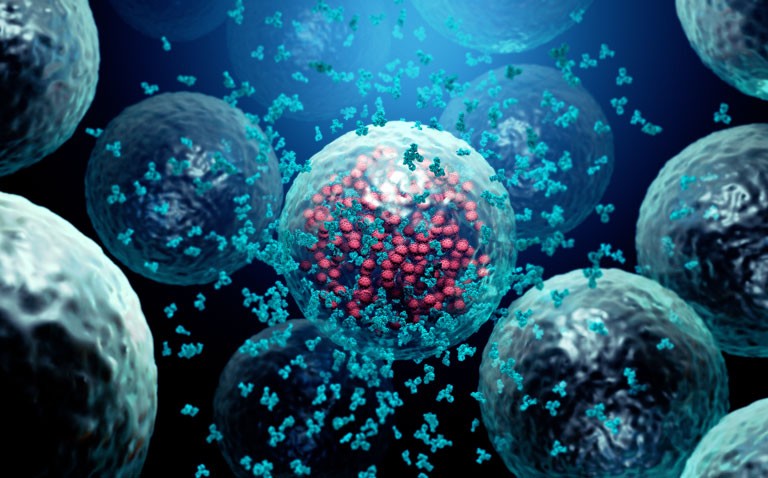While evidence shows that a single COVID-19 vaccination dose elicits a higher antibody titre, the response of T-cells is less well defined.
There are now several studies demonstrating that both the Pfizer-BioNTech or Oxford-AstraZeneca COVID-19 vaccines provide a sufficient anti-body titre to provide protection against infection with the virus. Nevertheless, to date, there is less information on the effect of vaccination on the immune response of T-cells which play an important role in the host’s adaptive immune response. The protective immunity from T-cells in healthcare workers (PITCH) study, is nested within the SIREN study and was designed to address the role of T-cell responses in immunity that was induced by natural infection with COVID-19 and after vaccination. The PITCH study was conducted in healthcare workers (HCW) before and after vaccination with the BNT162b vaccine (Pfizer-BioNTech). The focus of the PITCH study was to examine the level of T-cell response induced after only a single vaccine dose in HCWs who had either had a prior infection with COVID-19 or uninfected individuals. Blood samples were obtained prior to vaccination and 28 days (+ or – 7 days) later and the level of T cells measured and this difference served as the primary outcome measure for the study. The researchers also sought to test the effect of plasma derived from both groups of HCWs on several COVID-19 variants of concern.
Findings
A total of 237 HCWs with a median age of 43 years (77.6% female) received one (n = 216) or two (n = 21) vaccine doses. After only a single dose, the spike-specific T-cell response was six-fold higher in previously infected individuals compared to naïve individuals (median levels 340 vs 58, p < 0.0001). Furthermore, the T-cell response produced after a single vaccination among those who had been previously infected was equivalent to that derived in naïve HCWs after two vaccine doses (median levels 158 vs 165, p = 0.65). Previously infected HCWs also generated a 6.8-fold higher anti-spike IgG antibody response compared to naïve individuals after a single vaccine dose.
An important additional finding was how following a single vaccination with BNT162b, plasma from those who had a prior infection demonstrated higher in vitro neutralisation against several variants of concern including B.1.351 (from South Africa), B.1.1.7 (UK) and P1 (Brazil). However, while neutralisation was observed in the plasma of infection naïve patients, the response was much lower.
The authors concluded that further and ongoing work will seek evaluate the extent to which previous infection with COVID-19 impacts upon vaccine-induced T-cell responses.
Citation
Angyal A et al. T-cell and antibody responses to first BNT162b2 vaccine dose in previously SARS-CoV-2- infected and infection-naive UK healthcare workers: a multi-centre, prospective, observational cohort study. 2021 https://papers.ssrn.com/sol3/papers.cfm?abstract_id=3812375










